
Financial economics is the branch of economics characterized by a "concentration on monetary activities",in which "money of one type or another is likely to appear on both sides of a trade". Its concern is thus the interrelation of financial variables,such as share prices,interest rates and exchange rates,as opposed to those concerning the real economy. It has two main areas of focus:asset pricing and corporate finance;the first being the perspective of providers of capital,i.e. investors,and the second of users of capital. It thus provides the theoretical underpinning for much of finance.

The Vrije Universiteit Amsterdam is a public research university in Amsterdam,Netherlands,being founded in 1880. The VU Amsterdam is one of two large,publicly funded research universities in the city,the other being the University of Amsterdam (UvA). The literal translation of the Dutch name Vrije Universiteit is "Free University". "Free" refers to independence of the university from both the State and the Dutch Reformed Church. Both within and outside the university,the institution is commonly referred to as "the VU". Although founded as a private institution,the VU has received government funding on a parity basis with public universities since 1970. The university is located on a compact urban campus in the southern Buitenveldert neighbourhood of Amsterdam and adjacent to the modern Zuidas business district.
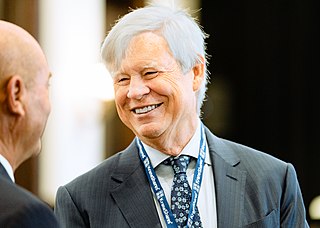
Robert Fry Engle III is an American economist and statistician. He won the 2003 Nobel Memorial Prize in Economic Sciences,sharing the award with Clive Granger,"for methods of analyzing economic time series with time-varying volatility (ARCH)".
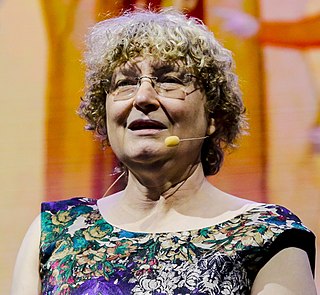
Baroness Ingrid Daubechies is a Belgian-American physicist and mathematician. She is best known for her work with wavelets in image compression.

J. Doyne Farmer is an American complex systems scientist and entrepreneur with interests in chaos theory,complexity and econophysics. He is Baillie Gifford Professor of Complex Systems Science at the Smith School of Enterprise and the Environment,Oxford University,where he is also director of the Complexity Economics programme at the Institute for New Economic Thinking at the Oxford Martin School. Additionally he is an external professor at the Santa Fe Institute. His current research is on complexity economics,focusing on systemic risk in financial markets and technological progress. During his career he has made important contributions to complex systems,chaos,artificial life,theoretical biology,time series forecasting and econophysics. He co-founded Prediction Company,one of the first companies to do fully automated quantitative trading. While a graduate student he led a group that called itself Eudaemonic Enterprises and built the first wearable digital computer,which was used to beat the game of roulette. He is a founder and the Chief Scientist of Macrocosm Inc,a company devoted to scaling up complexity economics methods and reducing them to practice.
Kenneth Jan Singleton is an American economist. He is a leading figure in empirical financial economics,and a faculty member at Stanford University. As the Adams Distinguished Professor of Management,Emeritus at Stanford Graduate School of Business,Singleton teaches a variety of degree courses in finance.

Charles Albert Eric Goodhart,is a British economist. He worked at the Bank of England on its public policy from 1968–1985,and worked at the London School of Economics from 1966–1968 and 1986–2002. Charles Goodhart's work focuses on central bank governance practices and monetary frameworks. He also conducted academic research into foreign exchange markets. He is best known for formulating Goodhart's Law,which states:"When a measure becomes a target,it ceases to be a good measure."
Richard S. J. Tol is a professor of economics at the University of Sussex. He is also professor of the economics of climate change at the Vrije Universiteit Amsterdam. He is a member of the Academia Europaea.

A coal-fired power station or coal power plant is a thermal power station which burns coal to generate electricity. Worldwide there are over 2,400 coal-fired power stations,totaling over 2,130 gigawatts capacity. They generate about a third of the world's electricity,but cause many illnesses and the most early deaths,mainly from air pollution. World installed capacity doubled from 2000 to 2023 and increased 2% in 2023.
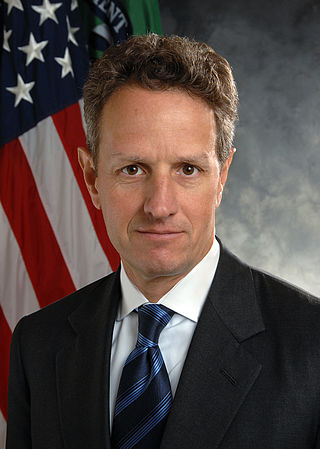
Timothy Franz Geithner is an American former central banker who served as the 75th United States Secretary of the Treasury under President Barack Obama from 2009 to 2013. He was the President of the Federal Reserve Bank of New York from 2003 to 2009,following service in the Clinton administration. Since March 2014,he has served as president and chairman of Warburg Pincus,a private equity firm headquartered in New York City.

The Duisenberg School of Finance (DSF) was an educational university in the Netherlands. It offered Master's level education in finance between 2008 and 2015. The school was launched as a collaboration between the Dutch financial sector and various academic institutions. DSF's founders include influential Dutch economist Nout Wellink and Minister of Economic Affairs,Maria van der Hoeven. The name was chosen by the founders to honor Wim Duisenberg,the first President of the European Central Bank.

The Smith School of Enterprise and the Environment is an interdisciplinary research centre of the University of Oxford that focuses on teaching research,and engagement with businesses and enterprises for long term environmental sustainability. The Oxford Smith School was established with the vision of a net-zero emissions future alongside achieving the Sustainable Development Goals,supported by a sustainable global economic and financial system. The school has a broad profile of research,teaching,enterprise engagement,and partnerships to support this vision.

Naomi Ellemers is a distinguished professor of social psychology at Utrecht University since September 2015.
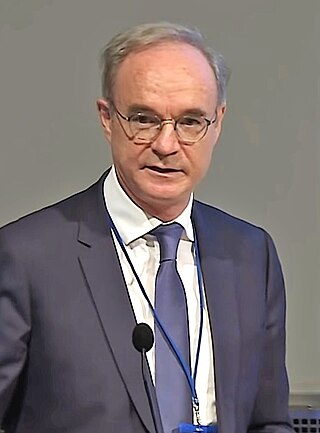
Patrick Bolton is the Barbara and David Zalaznick Professor of Business at Columbia Business School (2005-present) and a Visiting Professor of Finance at Imperial College London (2018-present). He is a past president of the American Finance Association (2015).
Miriam Cnop is a Belgian researcher and physician specializing in diabetology. She is Professor of Medicine at UniversitéLibre de Bruxelles and Clinical Director of Erasmus Hospital’s Endocrinology Department. She leads the ULB Center For Diabetes Research. Her work centered on type 2 diabetes,in particular mechanisms of lipotoxicity using human islets of Langerhans and human induced pluripotent stem cell-derived βCells. She is an associate member of the Royal Academy of Medicine of Belgium. In 2013,her work was awarded the Oskar Minkowski prize from the European Association for the Study of Diabetes.
Sonja Smets is a Belgian and Dutch logician and epistemologist known for her work in belief revision and quantum logic. She is Professor of Logic and Epistemology at the University of Amsterdam,where she was the director of the Institute for Logic,Language and Computation (2016-2021) and is affiliated with both the Faculty of Science and the Department of Philosophy. She also holds a visiting professor position at the University of Bergen in Norway.
Carolyn Fischer is an environmental economist. She was born in Ontario,later moving to the United States. She is a senior fellow for Resources for the Future,as well as being a Canada 150 Research Chair in Climate Economics,Innovation,and Policy. She is also a professor of environmental and natural resource economics at Vrije Universiteit-Amsterdam.
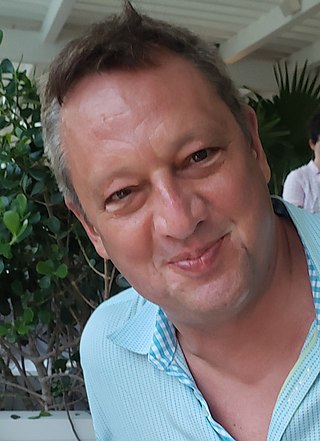
Tobias Adrian is a German and American economist who has been Financial Counsellor of the International Monetary Fund and Head of their Monetary and Capital Markets Department since 2017. He was previously employed at the Federal Reserve Bank of New York,where he was a Senior Vice President and the Associate Director of the Research and Statistics Group. His research covers aspects of risk to the wider economy of developments in capital markets. His work has covered the 2007–2008 financial crisis,monetary policy transmission,and the yield curve.
Kimiko Hirata is a Japanese climate activist. As a founder of the Kiko Network,a non-governmental organization,she has campaigned for emissions reductions for more than 20 years. As of December 2022,her grassroots work has led to the cancellation of 17 planned coal-power plants. Hirata also led landmark coal divestment campaigns against Mizuho Financial Group and Mitsubishi UFJ. She currently serves as executive director for the Tokyo-based think tank,Climate Integrate,which focuses on accelerating decarbonization.
Rena Bakhshi is a Dutch computer scientist and mathematician and programme manager for the Netherlands eScience Center's natural sciences and engineering domain.













